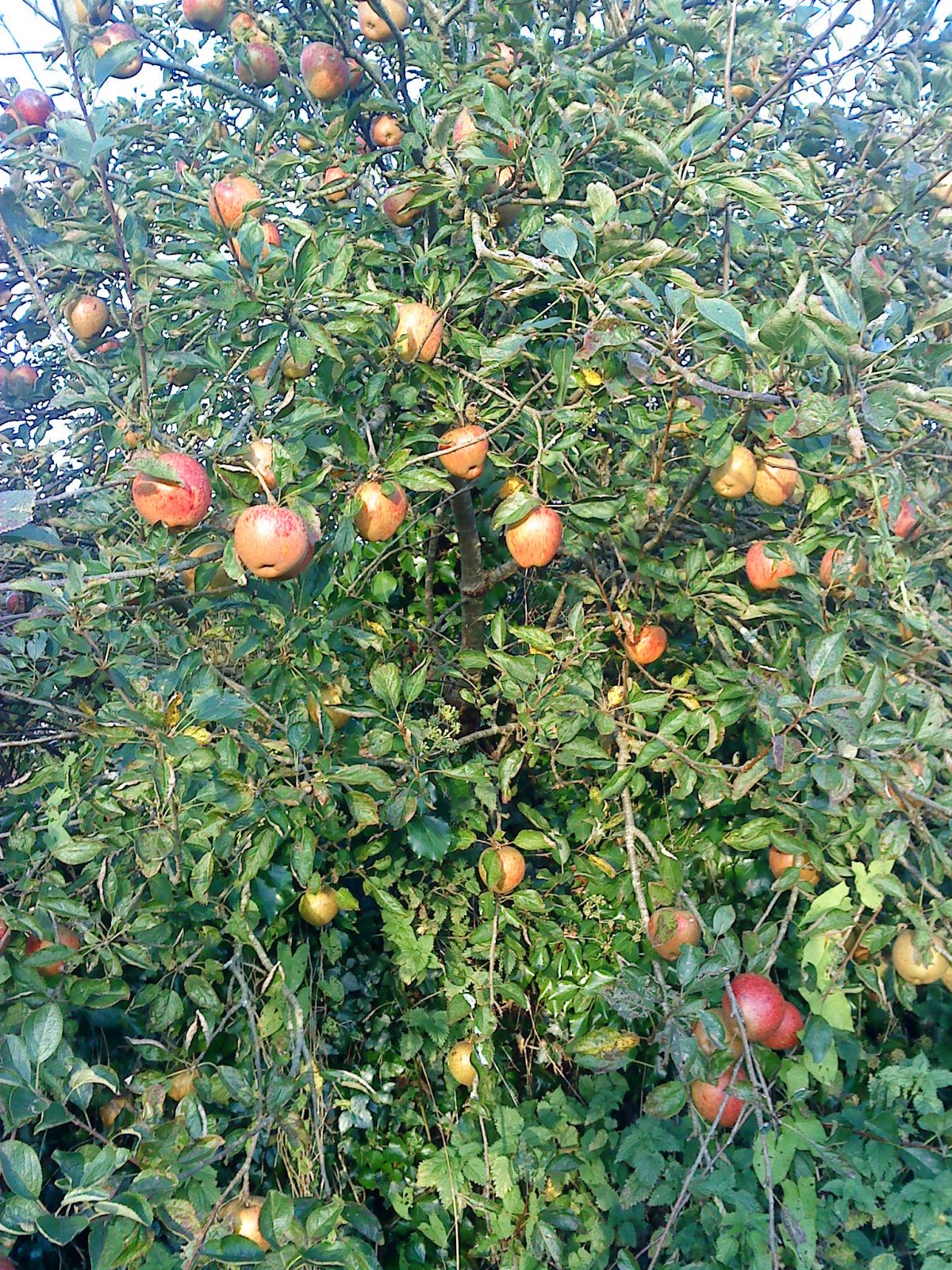
October 14, 2009
We’re devoting this Sunday’s volunteer session to picking apples in St Mabyn.
Camel Community Supported Agriculture members are invited to turn up at between 10 a.m. and 1 p.m. on Sunday. Look out for the Camel CSA sign on the gate. Or contact us.
We’re hoping to harvest enough apples to go in next week’s boxes and to turn into delicious, fresh apple juice the following Sunday. If you’ve got any surplus apples of your own, we’d like you to bring them along then.
In the meantime we’re busy trying to source an apple crusher and press. So if anyone out there can help us, please get in touch with one of our core (!) group.
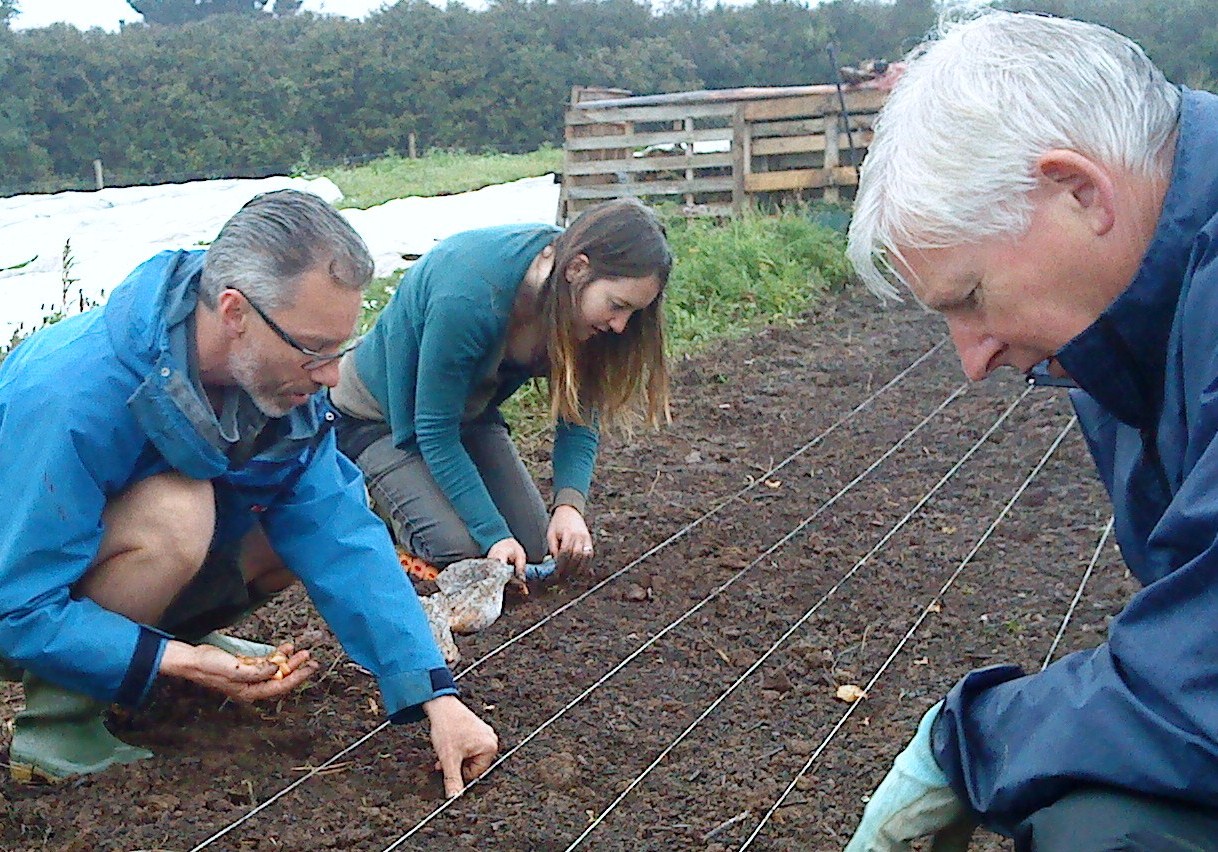
October 8, 2009
There are quite a few jobs to be done on Camel Community Supported Agriculture’s veg plot this Sunday.
Expert grower Jane Mellowship says:
“Firstly we need a fresh attack on the dock leaves in our legume and sweetcorn / squash sections. If we cultivate with the tractor we can loosen the roots, get them out and really work on eradicating them this winter ready for planting in spring. We also need to bag up the docks we’ve already removed.
“If it’s not too wet we need to strim around the boysenberries and tie up any stems still loose.
“Finally we would like to mark out where we plan to position the polytunnels so it is clear how much room is left for our permaculture triangle. We aim to start getting under control any of that area not currently planted with brassicas by strimming, weeding and thickly mulching with straw, hay and cardboard.
“So fingers crossed for a beautiful, dry autumn day!”
Onion sets
Last Sunday a small team braved the steady Cornish drizzle to plant out onion sets, put up posts and wire and tie in the remaining boysenberries.
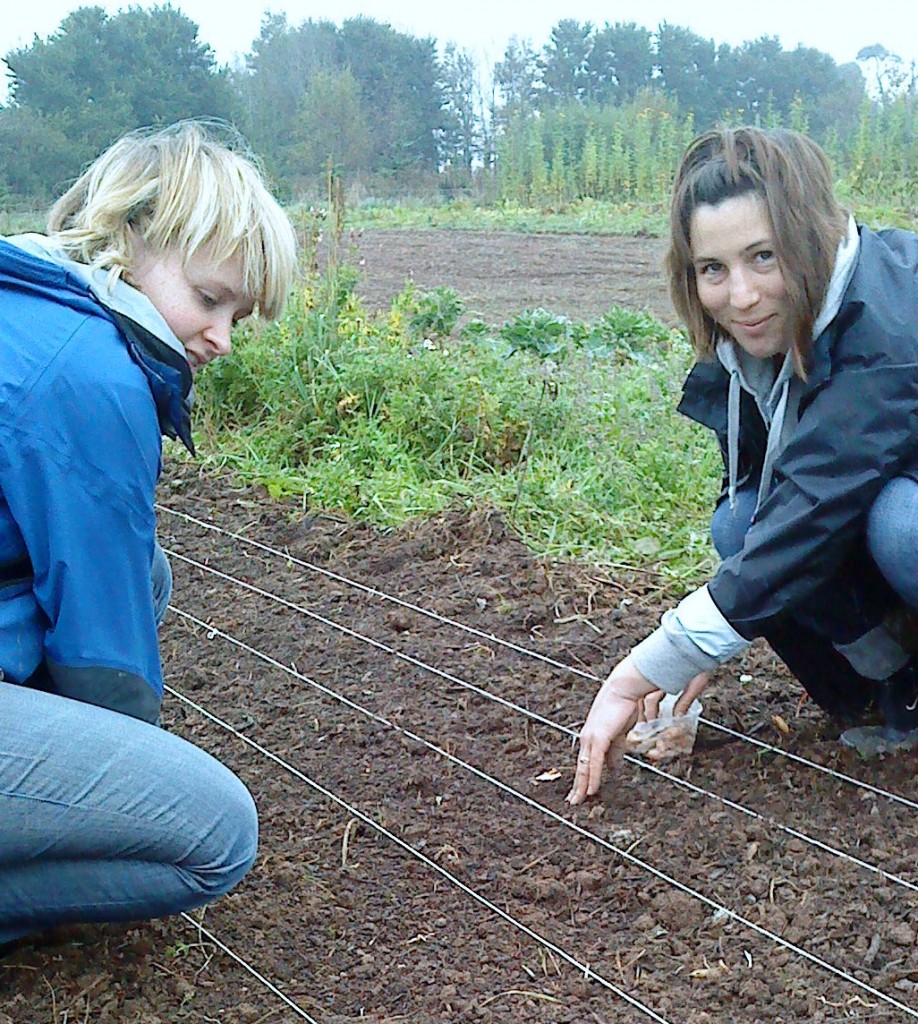
Luckily we had the help of two “WWOOFers”. No, not the four-legged variety!
Helen and Rachel are volunteers from London who’ve signed up for the World Wide Opportunities on Organic Farms (WWOOF) exchange network. Farmers and horticulturalists offer food, accommodation and opportunities in return for volunteer help from people wanting to learn about organic lifestyles.
They were “lent” to us by Cathy and Dominic at South Penquite Farm, where they’d been working over the weekend. Helen and Rachel are hoping to leave their jobs in London eventually to work on the land. We look forward to seeing them in Cornwall again soon.
Many thanks on Sunday to expert growers Mark N and Jane, as well as Charlotte, Mark M and Mike S. Another team of stalwarts turned out for picking and packing day last Friday – p & p supremo Trish plus Charlotte, Gillian, Jenny, Leonie and Penny.

October 3, 2009
Our seasonal veg boxes will continue to be available to members throughout the winter months.
Camel Community Supported Agriculture’s core group has decided that continuity of supply should be a top priority. This is despite the fact that we’ve harvested most of the vegetables we’ve grown this year.
By the start of next year, we’ll have eaten all our own remaining parsnips, carrots, onions, celeriac, parsley and beetroot. By then we will have only cabbages, kale, Brussels sprouts and (hopefully) some sprouting broccoli to fall back on. That’s provided the rabbits leave some for us.
So the proportion of vegetables we buy in from other local growers will continue to increase significantly over the next few weeks.
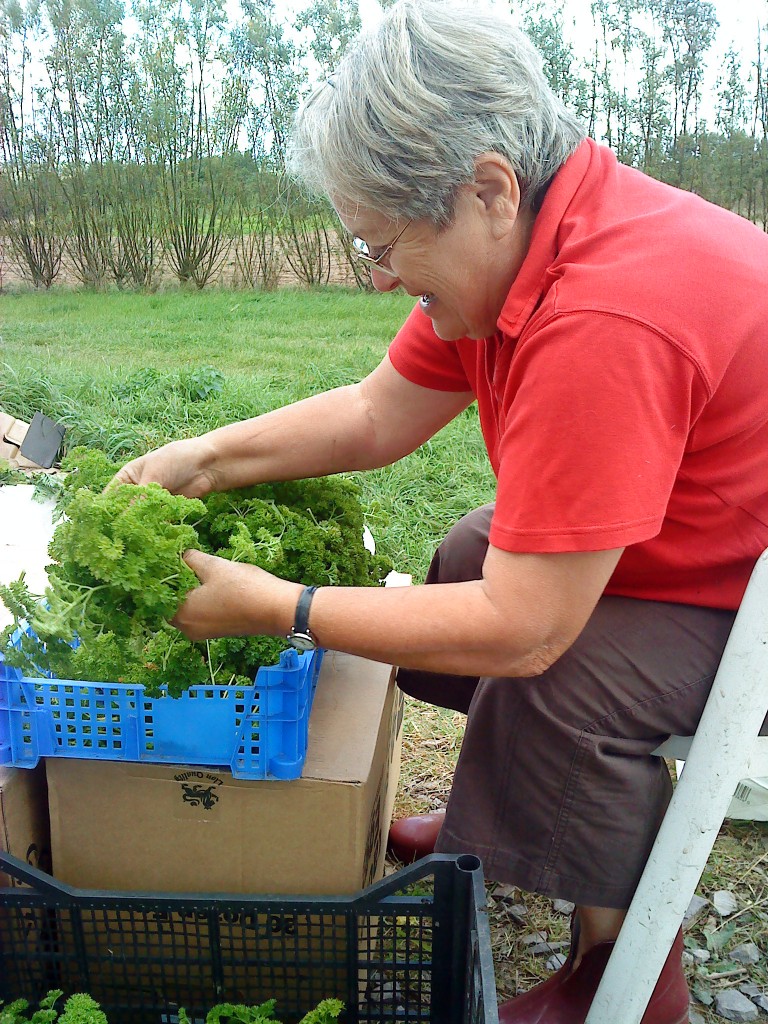
Expanding
Our financial applications to the Lottery’s “Changing spaces” Local Food programme and the East Cornwall Local Action Group are about to be submitted. Core group members have been furiously working out last-minute cash flow projections. Then we face several nerve-racking weeks while we wait on tenterhooks to discover whether we’ve been successful.
We need an injection of capital to realise our dream of expanding and consolidating our growing-our-own-food project.
It will fund the purchase of equipment, materials and resources to set up a self-sustaining growing operation on our existing site. It’ll also support the start-up costs of providing a training and educational programme for volunteers and local groups.
We want to employ an expert grower to manage cultivation, guide volunteers and oversee group visits to our St Kew Highway plot.
After the three-year funding period elapses, we’re confident we can be totally self-sustaining. But we need that initial boost to invest in equipment like a small tractor, packing shed, bore hole, poly tunnels, tools and the all-important predator-proof fencing.
However we’re well aware that there is only a 50% chance (at best) of getting Lottery money. The competition is stiff: there have been so many applications for a share of the £50m pot of gold.
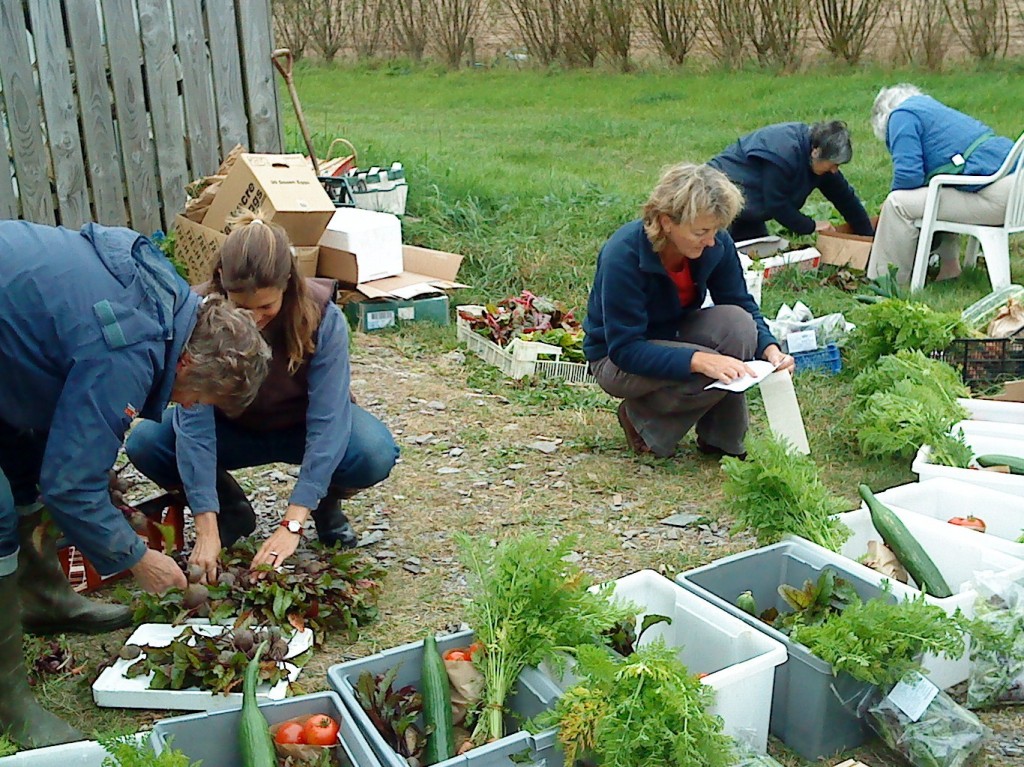
Committed
We’ve proved as a group that we can get a community agriculture project off the ground and keep the momentum going, come what may.
None of this would have been possible without such committed volunteer input from a large proportion of our members. Membership now stands at just under 50 households.
As well as the three expert growers, we reckon that we now have around 25 regular volunteers working at various administrative tasks during the week, tending the plot and cultivating the vegetables in all weathers on a Sunday, or picking and packing the boxes every Friday morning.
Along with the land so generously made available by the Brown family, our dedicated and loyal volunteers are our most valuable asset.
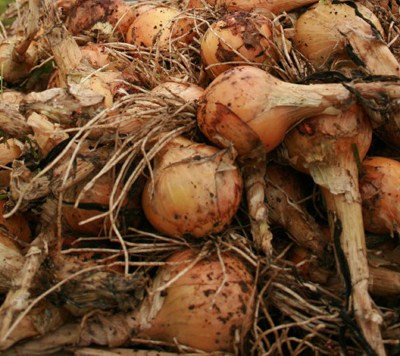
Expert grower Jane Mellowship says:
“On Sunday we’re planning to plant out onion sets. It’ll make a change from weeding! Also putting up posts and wire and tying in the remaining boysenberries.
“See you there!”
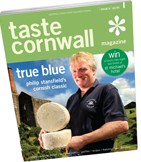
September 29, 2009
Our dogged efforts to grow and distribute our own vegetable crops continue to attract media interest.
Both Camel Community Supported Agriculture and our counterparts at the far end of the county, West Penwith CSA, are featured in the latest edition of Taste Cornwall magazine.
Writer Kevin Gray-Roberts waxes positively lyrical about reaping the rewards of harvesting earthy new potatoes, ripe tomatoes and crisp dewy lettuces.
Community supported agriculture is the perfect antidote to the anonymous consumerism that has overtaken food production and retail in the UK.
A certain section of the food-buying public has become so disenchanted with how the conventional food market operates they are taking direct, affirmative action to re-establish control of what they eat.
The positive spin-offs of this are reduced food miles, packaging and waste, greater stability, security and sustainability for the farms, and community interaction across age and income groups.
Kevin’s article concludes that what we’re doing is superb medication for body and soul. He urges others to follow our example and get stuck in.
Not only will your food be fresher, your fitness, your outlook and your social life will all be infused with a new and vigorous growth.
- Taste Cornwall comes free with the October issue of Inside Cornwall magazine.
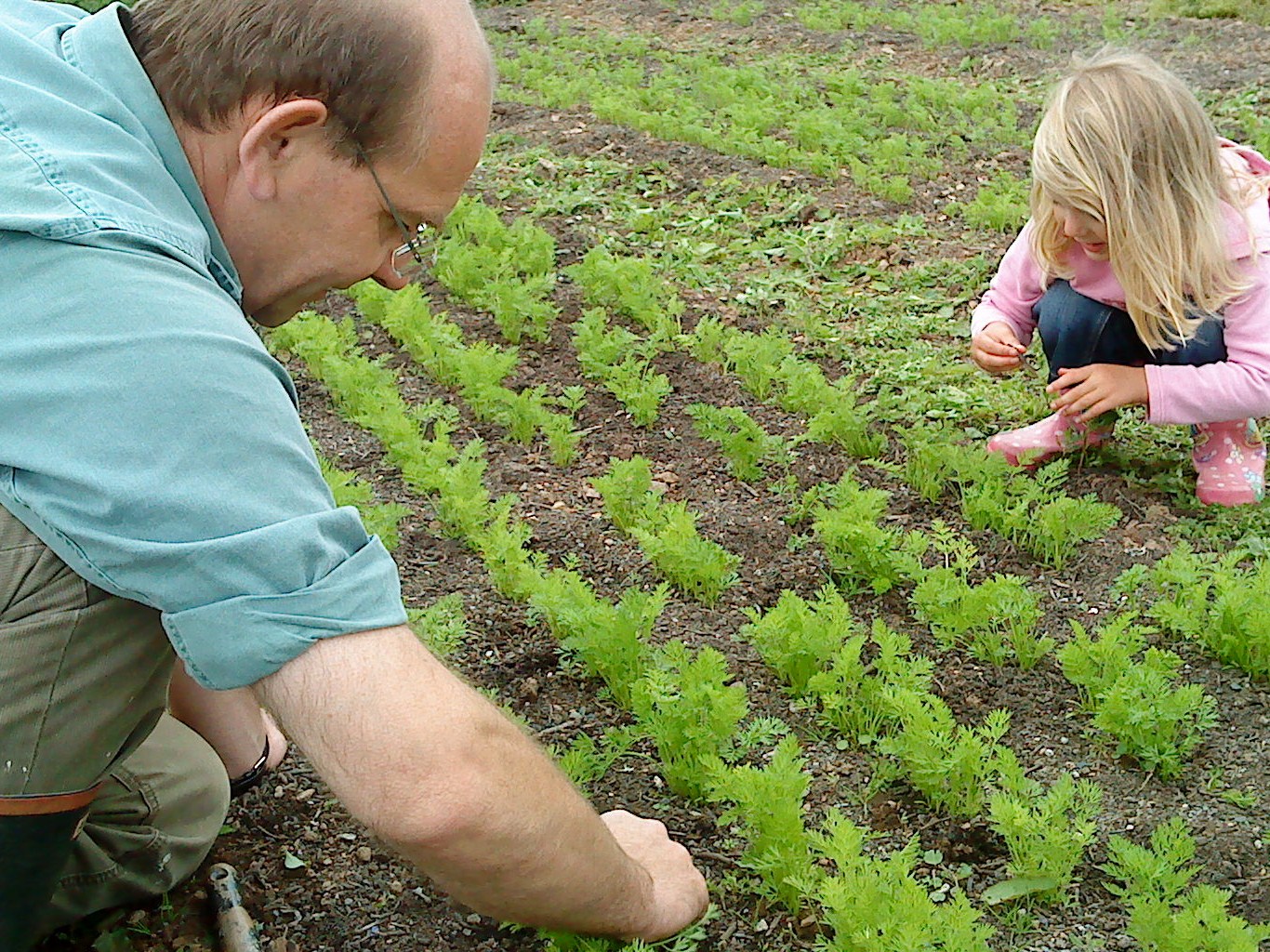
September 22, 2009
We are now very close to submitting our final bids for grant funding for Camel Community Supported Agriculture’s growing-our-own-food project.
We’re seeking financial support from the Lottery Local Food programme and from the East Cornwall Local Action Group, part of the South West Regional Development Agency.
We have a clear idea of the sort of money we require to get the project up and running. For example, in the first year we need: –
- £12,500 for a tractor and its equipment
- £6,600 for polytunnels and a seeding tunnel
- £3,600 for packing and storage sheds
- £2,850 to sink a borehole and install a water management system.
Volunteers will be pleased to learn that we have also budgeted £600 for an upgraded rabbit proof fence.

September 16, 2009
I’m talking about the rabbits.
They’re devastating our brassicas – the 1,000+ donated by Fentongollan Farm that Camel CSA volunteers planted in monsoon conditions in July.
They’ve hopped along the protective fleece and created several neat lines of holes by boring down vertically into the centre of nearly every plant. How do they do it? Have they got sat nav or is it simply down to their whiffly noses?
The rodents seem to like munching red and green cabbage, kale (both kinds) and purple sprouting broccoli the best. But, just like humans, they don’t seem to be quite so keen on the Brussels sprouts.
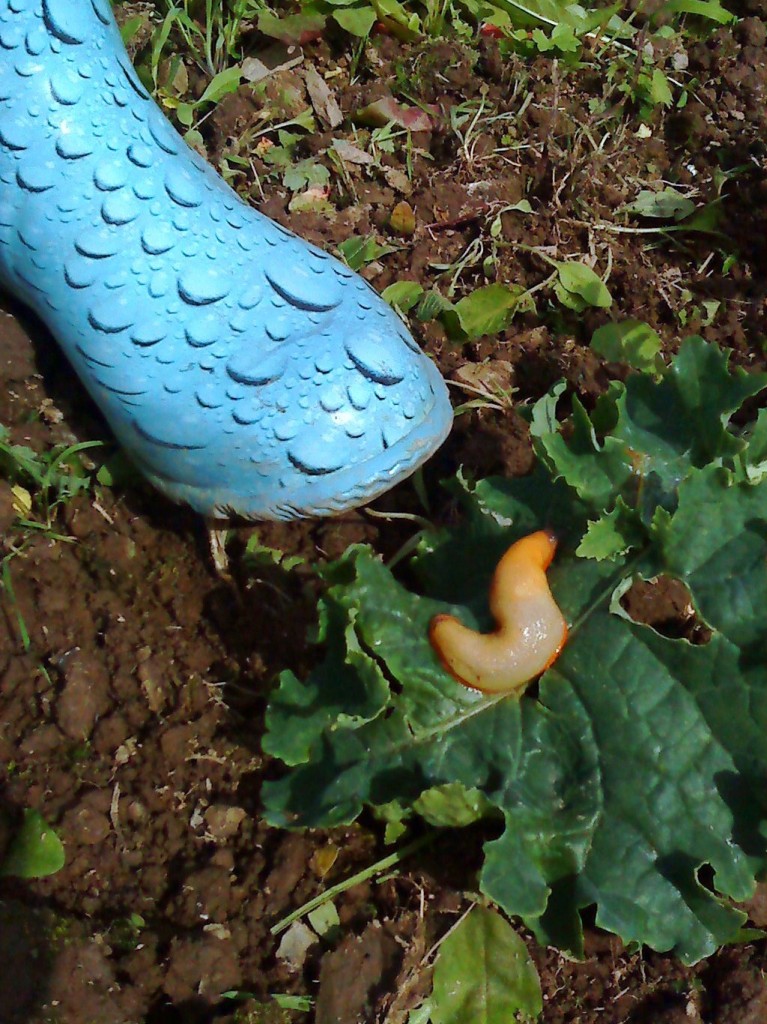
Slug attack
Those famous Cornish slugs with the orange-frilled stomachs have also been having a go. There’s been quite a bit of joking about the best way to deal with them. Slug stir-fry, anyone?
We’ve spent the last two Sundays hand-weeding what’s left of the brassica plants, in the hopes that they will recover from these predatory attacks.
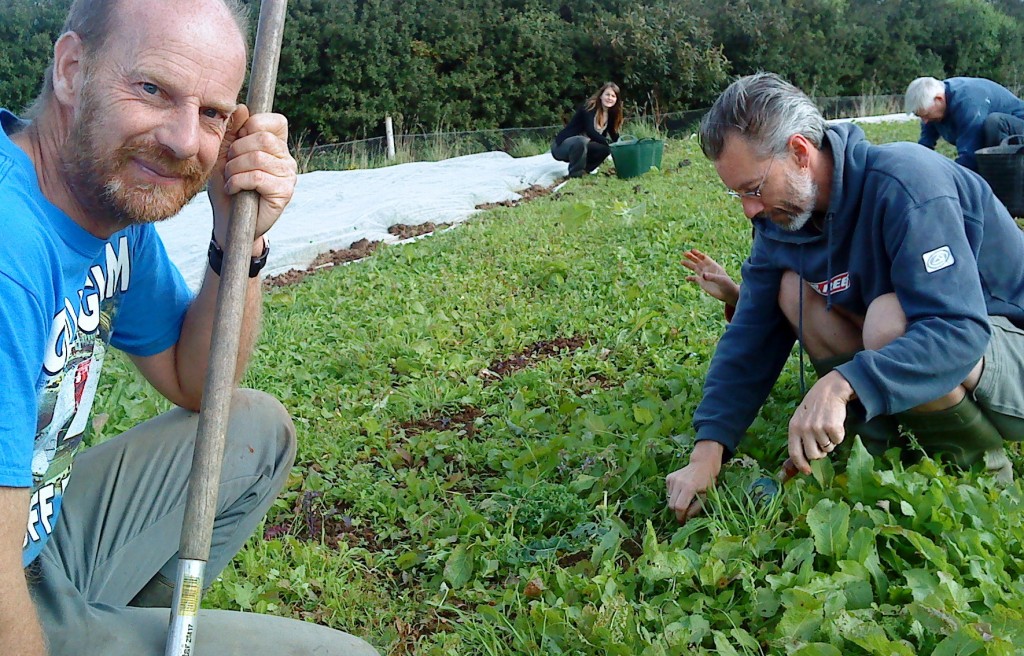
Many thanks to our stalwart volunteers – expert growing team members Jane, Jeremy and Mark N, aided by 10-year-old Callum, Cath, Charlotte, Danny, Jenny (14), Keira (3), Kitty, Mark M, Mike H and Mike S in week one. And thanks last week to experts Jane and Jeremy as well as Charlotte, Dan, Kate, Kitty, Marianne, Mike S and seven-week-old baby Hollie, who slept through it all.
Provided we’re successful in our funding bids, we’ll be able to invest in some strong predator-proof fencing and netting in the near future. But in the meantime, please do tell us. Should we shoot those pesky rabbits – or what?
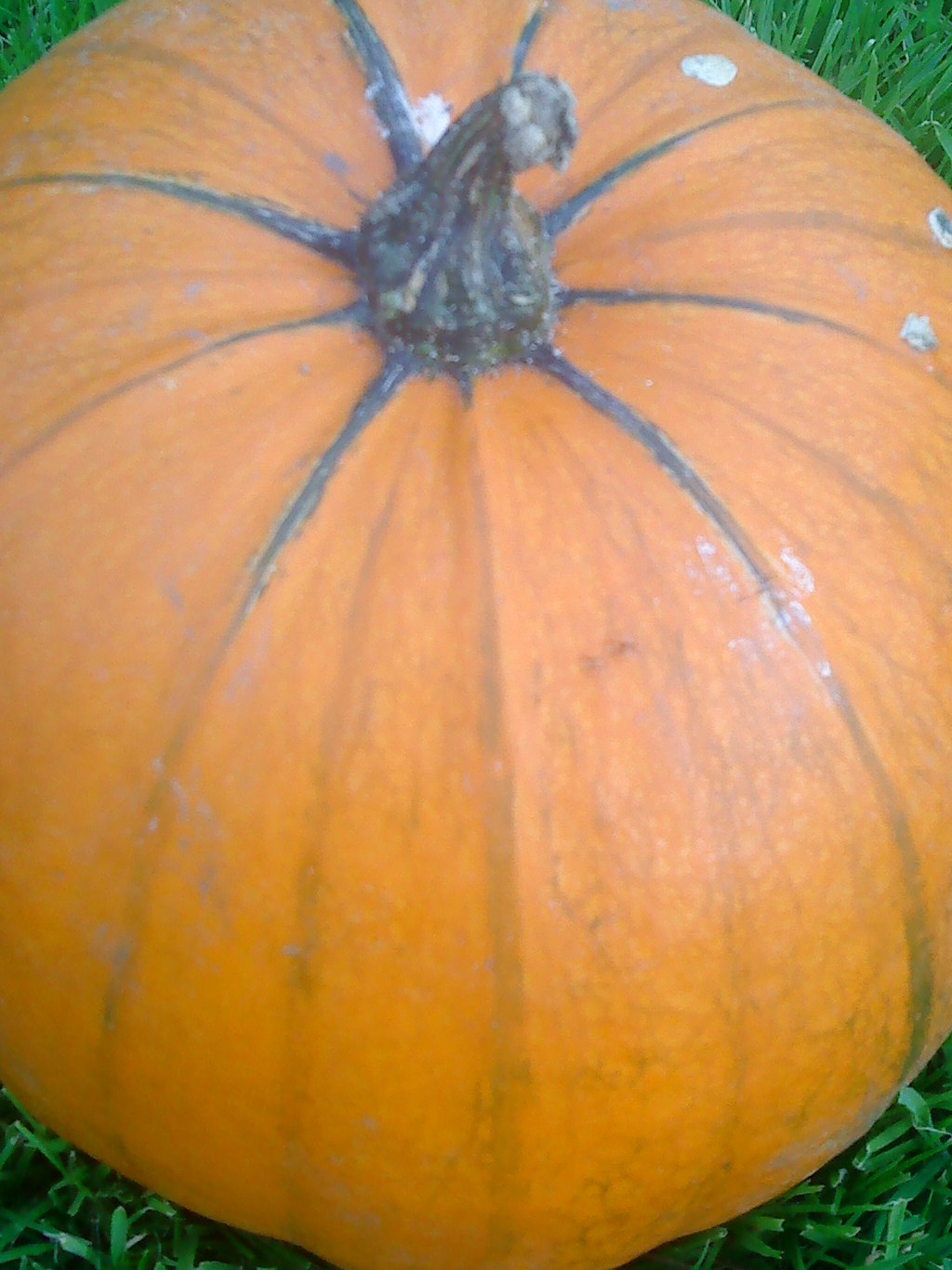
September 15, 2009
Holiday nightmare or domestic dream? Frances is back home after a visit to her parents, who are enthusiastic members of Camel Community Supported Agriculture’s growing-our-own-food project…
“Who’d have thought I’d spend my first morning visiting my parents helping Mum make three lots of soup, the easiest and quickest way to make sure all the vegetables from the box got used.
“Dad incidentally was out of the way, sorry, too busy up at the farm helping out with the other volunteers.
“My favourite soup was the roast tomato and basil (see below), as the tomatoes actually tasted like tomatoes unlike the ones you get from the supermarket in Newcastle!
“The fun didn’t stop there, with another vegetable box arriving towards the end of my visit. This box contained a wonderfully orange pumpkin which we roasted to make a pumpkin and sage risotto with blue cheese.
“I made up the recipe, simply adding the roasted pumpkin to a basic risotto, adding chopped fresh sage leaves to the stock and cubes of blue cheese on top of the risotto at the end.
“Although the pumpkin ended up being a little bit watery (perhaps we should have stuck to making soup!) the risotto turned out to be very good energy food for dancing the night away at the barn dance in St Mabyn that evening which was a lovely, if not exhausting end to my Cornwall visit.”
Roast tomato and basil soup Ⓥ (adapted from the Good Housekeeping Cookery Book)
Preparation and cooking time: 40 minutes. Serves 4
Ingredients
2 lbs fresh ripe tomatoes
1 onion
1 medium potato
1 stick of celery
1 carrot
2 tablespoons olive oil
1 litre of vegetable stock
1 tablespoon tomato puree
1 bunch of basil
Method
Halve tomatoes and place in baking tray. Sprinkle with oil and a few basil leaves. Cook in a hot oven for 30 minutes. Chop onion, carrot, potato and celery finely and sautee gently in oil in a large pan for 10 minutes. Add stock, salt and pepper and simmer for 10 minutes. When tomatoes roasted, remove skins and add to pan. Chop stems of basil and half the leaves and add to the mix with tomato paste. Simmer for a further 5 minutes. Puree in a blender. Serve with a garnish of basil leaves.
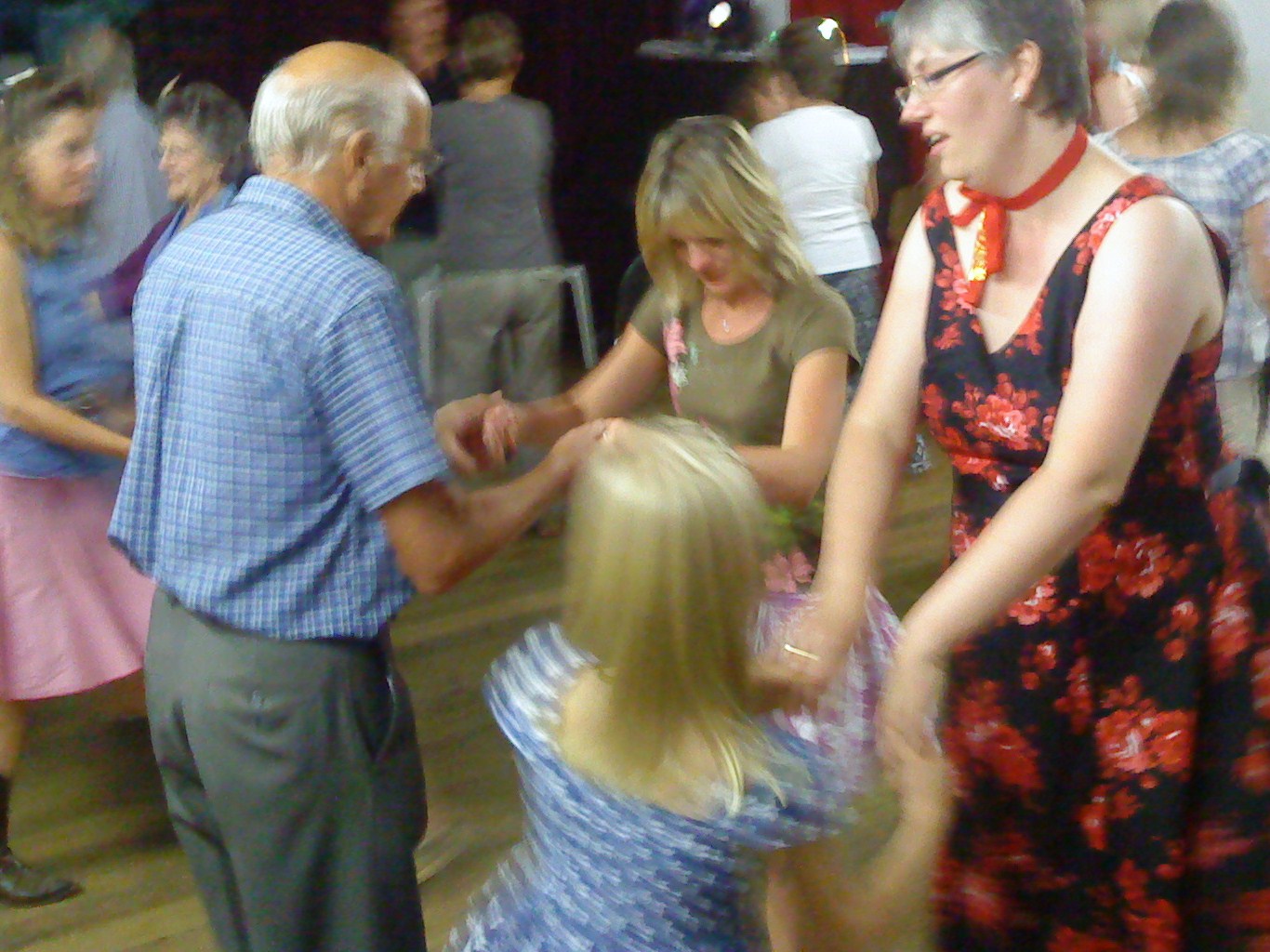
Around 40 enthusiasts aged from eight to 80 lined up for Camel Community Supported Agriculture’s barn dance in St Mabyn village hall.
We shuffled, swung and dosey doed under the expert tutelage of renowned Cornish caller Howard Burrows.
The fun event, organised by demon-dancing fellow members Mike and Yvonne Haywood, raised £55 for Camel CSA funds.
Thank you both!
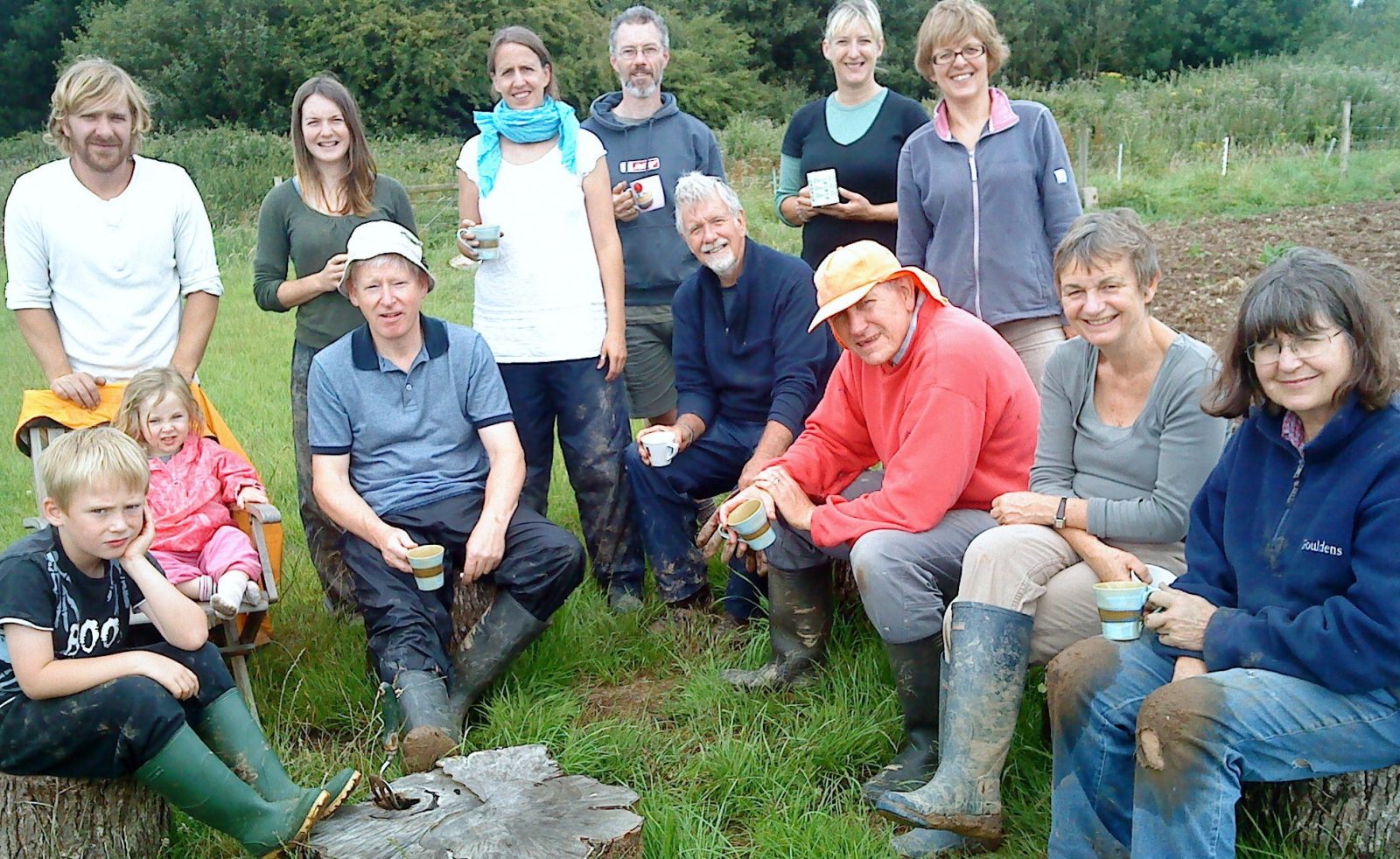
September 11, 2009
Camel Community Supported Agriculture has been chosen to host a new type of training event being organised by the Soil Association.
A total of 23 grow-your-own-food enthusiasts in the south-west, from Land’s End to Totnes, are taking part. It’s proved so popular that more than 10 would-be participants have had to be turned away.
The horticultural mentoring event for existing and prospective CSA groups and growers in the south west is on Monday 14 September at our site at St Kew Highway behind St Kew Harvest Farm Shop.
It will give us an opportunity to consider soil fertility, crop planning and other important aspects of community supported agriculture. It’ll also help us build all-important networks with other growing groups.

Advice
The event’s being organised by Ben Raskin, the Soil Association’s learning manager and horticultural advisor, with the financial backing of the Making Local Food Work project. Ben says:
“The idea is to put growing groups with similar aims into mentoring groups where they can get help and advice.
“There’s been a massive response to these mentoring events from Cornwall and Gloucestershire in particular, which is fantastic. We’ve had to turn people away from next week’s session at St Kew Highway and there is a waiting list of 10.
Cornwall is already playing a leading role in the Making Local Food Work programme led by the Plunkett Foundation. As Jan Trefusis of the foundation says in a recent magazine article:
“Cornwall really is the star of this programme, with a high proportion of our uptake for the project coming from across the region.”
Tim Deane from Northwood Farm near Exeter in Devon, who founded the UK’s first organised vegetable box scheme, will share 30 years’ experience of crop planning, labour and machinery needs at the event.

Dedicated
Camel Community Supported Agriculture’s own team of expert growers – Jeremy Brown, Jane Mellowship and Mark Norman – will describe the ups and down of the initial six months of our own local food project.
The initiative to grow our own food and to share the risks and rewards would never have got off the ground without their combined skills and dedication. They’ve willingly devoted many hours of unpaid work to what’s often been an uphill task.
Jeremy, Jane and Mark have been brilliant; there’s no other way of putting it. Camel CSA members owe them a big debt. We cannot thank them enough.
- See and hear what our expert growers have to say on Camel CSA’s latest video – Our first harvest


